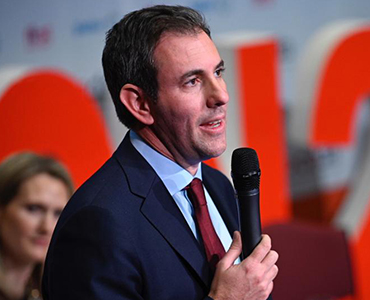The economic challenges Australia is currently facing are primarily homegrown challenges, Shadow Federal Treasurer, Dr Jim Chalmers told a CEDA State of the Nation audience in Parliament House, Canberra.
 “I think that we still have a set of challenges in our own domestic economy which should be our primary focus,” he said.
“I think that we still have a set of challenges in our own domestic economy which should be our primary focus,” he said.
“We've got the slowest economic growth we've had for the decades since the Global Financial Crisis.
“We've got weak consumption, wages are stagnant, living standards are in decline, household debt is at record highs, productivity has gone backwards over the year.
“All of these things together, there's no use pretending that they aren't very problematic, and my argument is that if we don't deal with those things in our own domestic economy then we leave ourselves unnecessarily exposed to the ups and downs of a volatile global economy.”
Dr Chalmers said there are certain things that government should be contemplating doing in the context of a relatively weak economy.
“Clearly we need a settled energy policy because energy policy has been a handbrake on growth for a long time,” he said.
“I might have done a hundred boardroom conversations in the last calendar year and the only thing that comes up in every single boardroom conversation I have is energy.
“If the government was inclined to bring forward part of stage two of their income tax cuts, there is scope and an argument to increase Newstart in a responsible way, understanding that all of a Newstart increase would be spent in the economy, so it would be quite effective as a stimulus, as well as the right thing to do.
“We think that there's scope to bring forward some infrastructure investment, we are cognisant of skill shortages we know that some projects aren't shovel ready, but we know that some projects are and so we share the Reserve Bank Governor’s view that they could bring forward some infrastructure spending.
“And the final one and perhaps the one that the government is most likely to agree with us on is we think there should be an incentive for business investment.
“We took to the election an idea called the Australian Investment Guarantee that was 20 per cent immediate deduction, accelerated appreciation, then you use the rest of your usual depreciation schedule and we know that the government's looking at some version of that, if they announced that and it's good, we'll support it.”
Dr Chalmers echoed CEDA’s
Connecting people with progress survey that found the majority of respondents felt they had not benefitted or did not know whether they had benefitted from the country’s record economic growth when he said “the Americans have just celebrated their 10th year of continuous growth and it's a huge deal in the US, now we've cracked 28 years and I don't think most people know about it.”
“We've had that remarkable run of growth, 28 consecutive years of expansion, and we should celebrate it and we should understand the causes of that.
“Just because we've grown for 28 consecutive years that doesn't necessarily preordain that we will grow for another five or another 10 or another 28.”